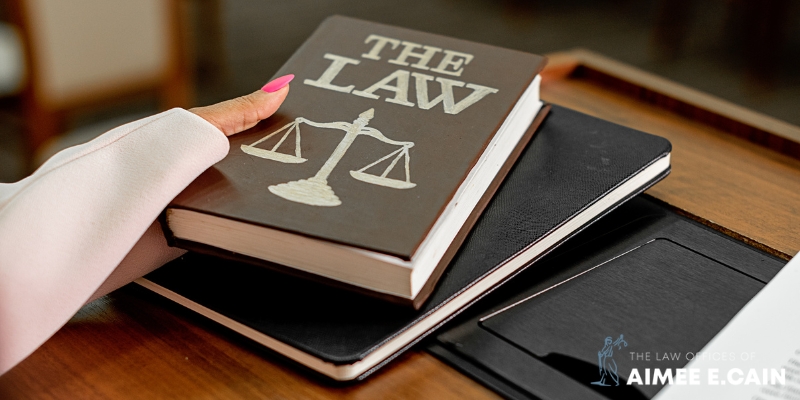Concord Asset and Debt Division Attorney

The Law Offices of Aimee E. Cain Concord, NC Asset and Debt Division Lawyer
When spouses divorce, they separate not only their lives and memories they have built over time but also property, assets, and debts. While many spouses hope to settle the divorce independently and reasonably, some elements can become difficult because of the emotional attachments built throughout the marriage. Understanding how property division works can help you avoid costly financial mistakes in your divorce process.

If you are facing a divorce and have property, assets, or debt that need to be discussed, it is important to have the help of an attorney who can help guide you through the decision-making processes while remaining focused. The Law Offices of Aimee E. Cain have years of experience in family law and can guide you through asset and debt division in your divorce.
Types of Property
North Carolina law separates property into three categories:
- Separate property. This is any property that was owned by a spouse prior to the marriage, gained by a spouse through inheritance or gift, during the marriage, or any property that was obtained after a legal separation (if the finances were independent of marital funds or were from the sale of any already established separate property).
- Marital property. This type of property includes any assets that were acquired during the course of the marriage. This can include real estate, pensions and retirement, debts accrued, and even gifts that were given to one another during the marriage (unless it was established as separate property at the time of the gifting).
- Divisible property. This property includes any assets that increased or decreased after the separation but were considered marital property. Any property that was acquired by either spouse through the use of marital assets after the date of separation is included, as well as any increases in marital debt that are accumulated after the date of separation.
One of the biggest differences between marital and divisible property is the time of valuation. The value of a marital property is valued when the separation occurs, whereas divisible property is at the time of trial. There can often be a large difference in time between these two events. However, both are subject to equitable distribution.

Equitable Distribution
In any divorce case, the legal system tries to establish an equitable outcome for both parties, known as equitable distribution. This process involves reviewing the assets and debts that a couple has accrued during the marriage to decide how best to divide them. Ultimately, the outcome sought is 50/50, but other factors play a role in that decision. If a spouse makes significantly more or has greater access to separate assets, for example, they may be awarded less of the marital assets. However, the courts recognize that each case is unique and will take into consideration the facts of each case to determine the best outcome for all parties involved.
Major Considerations in Asset and Debt Division
While North Carolina law tries to establish equitable distribution, many factors play a role in the final outcome. These can include:
- A single spouse’s income, property, and debts
- Any previous marriage supports that are provided
- Marriage timeline coupled with age and health of both spouses
- If children are involved, what are the needs of the custodial spouse
- Any retirement benefit expectations
- The determination of effort from both spouses in purchasing the property
- Any contributions to increase the value of separate property
- Tax consequences
- Any actions by either spouse that preserve or waste marital assets
- Other distribution factors that the court may want to consider
FAQs About Concord, NC Asset and Debt Division Law
Is North Carolina a Spousal Property State?
North Carolina is considered an equitable distribution state. Under this, when spouses are not able to come to an agreement on the dissolution of property, the court will determine what is considered fair and equitable to both parties and will then adjudicate a fair decision. This determination is considered regardless of whose name is on the property or how funds were distributed in the purchase of the property.
Is a House Owned Before Marriage Considered Marital Property in North Carolina?
As long as property owned before the marriage is not gifted in any way to the other spouse or to the marriage, then the property owned prior to marriage remains solely the right of the spouse who owned it. It does not automatically become divisible assets of the marriage. Only property obtained during the marriage is considered marital property and subject to equitable distribution.
What Is a Wife Entitled to in a Divorce in North Carolina?
Both spouses, regardless of gender, are generally entitled to equitable distribution of all assets in a divorce. Additionally, both spouses, assuming there are no felonious charges or endangering situations, are also both entitled to custody of any minors involved in the divorce. If the couple is unable to reach an agreement on spousal support, division of property, or child custody, a court will make a fair judgment.
What Is Considered Separate Property in North Carolina?
Separate property is the reference used for any assets owned by a spouse individually from the other. This can include any property, such as real estate or personal property, that was acquired prior to the marriage or that was acquired through inheritance or gift. This also includes any student loans or debts that were acquired prior to the marriage as well.
Asset and Debt Division Attorney in Concord
The impact of marital assets and debts is a slippery slope that can seemingly lead down many different paths. Knowing the basics is helpful, but having an expert on your side to guide you through the process can be invaluable. At The Law Offices of Aimee E. Cain, our experience and expertise have served our clients for years. A divorce can be emotional enough; let us help you make sense of it. Contact us today, and we can get started helping you reach the equitable outcome you deserve.




